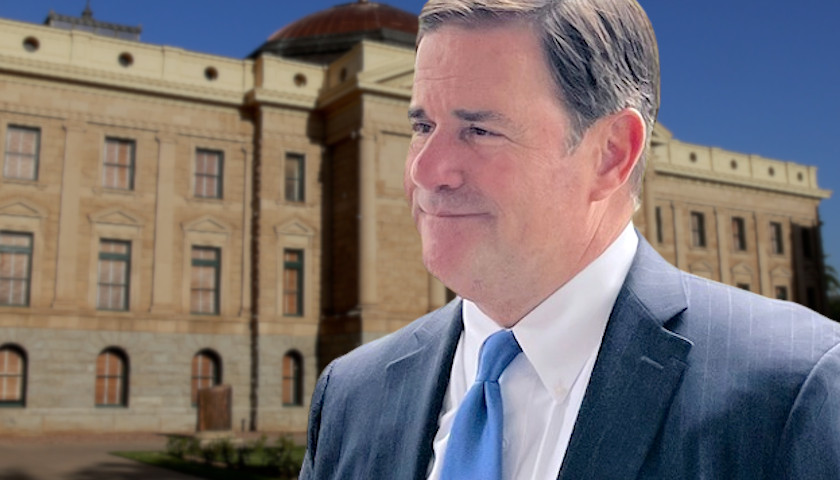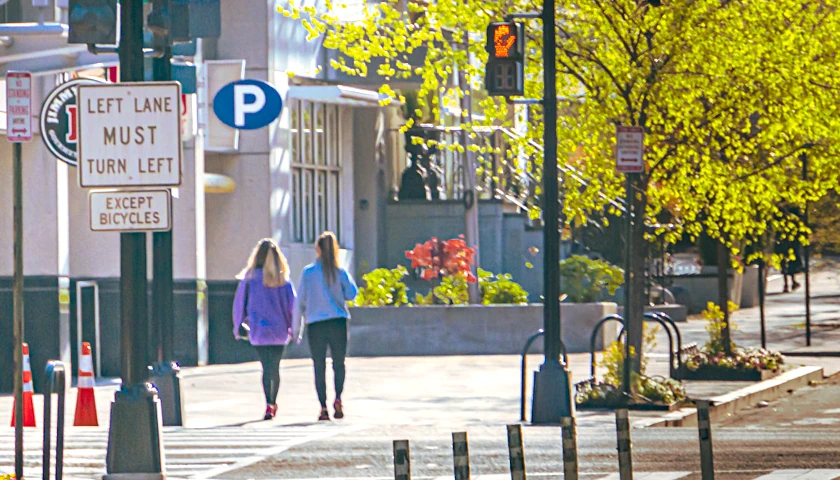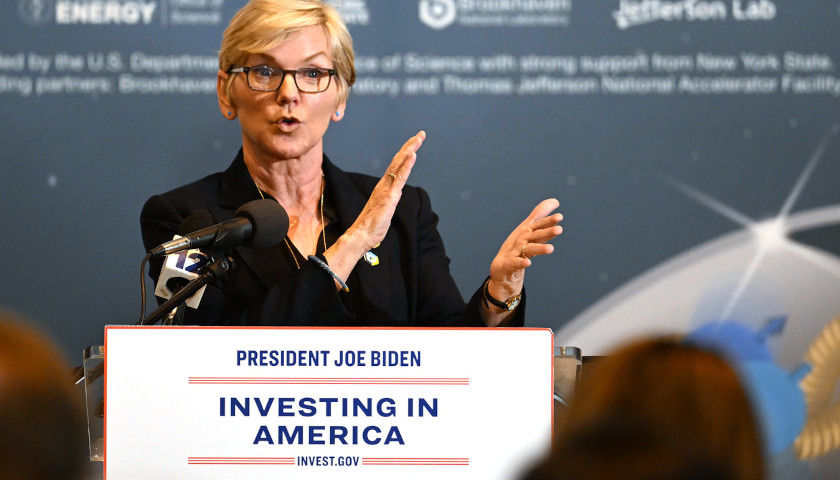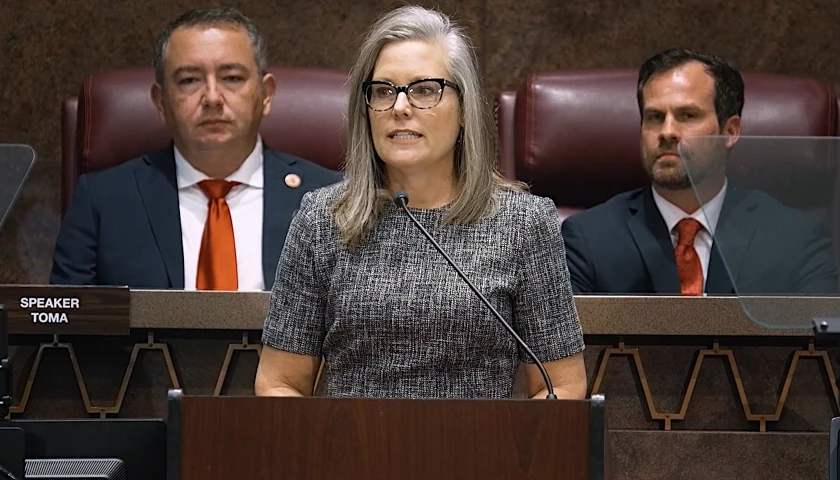A couple of Republican legislators have been holding up election integrity bills from passing this year, but considerable groundwork was laid last year. The Arizona Legislature pushed hard to get 11 of these bills passed in 2021, in large part due to concern there was fraud in the 2020 presidential election. So far this year, Gov. Doug Ducey has only signed one election integrity bill into law, and an inside source at the state capitol told The Arizona Sun Times the legislature may wrap up this year’s session as soon as Friday.
Along with a list of last year’s successful bills provided to Republican Briefs, State Senator Vince Leach (R-Tucson) said, “For those of you who think that our legislature did nothing for election security, here are the actual bills passed this [past] session. … The rest will have to wait until we have a larger majority.”
State Rep. Jake Hoffman (R-Queen Creek), who was responsible for three of the most important bills that passed last year, and the only one Ducey has signed this year, added in a statement to the Sun Times, “While many signature reforms have been signed into law, the work to secure our elections is never finished and we intend to come back in 2023 with stronger Republican majorities to continue doing the work of the People on this critically important issue.”
This year, Republicans have such a narrow majority in both chambers of the Arizona Legislature that if just one Republican defects on either side, voting with the Democrats, it is enough to stop Republican election integrity bills from passing. Arizona House Speaker Rusty Bowers (R-Mesa) blocked several of this year’s bills in the House, and State Senator Paul Boyer (R-Glendale) blocked even more in the Senate. Boyer is not running for re-election, but Bowers, who is term-limited, is running for the Senate.
SB 1002, now ARS 16-545, prohibits early ballot envelopes from revealing voters’ political party affiliations. SB 1003, which amended two statutes, requires election officials to make a reasonable effort to contact voters whose signatures are missing on early ballot envelopes. SB 1485, which amended various statutes, cleaned up inactive voter rolls by renaming the Permanent Early Voting List to the Active Early Voting List and requiring election officials to send inactive voters a postcard asking them if they want to receive an early ballot.
SB 1530, now ARS 16-547, requires election officials to include instructions on the envelopes of ballots mailed to voters explaining how to mark “return to sender” on the envelope and drop it in the mail if addressed to someone who does not live at that residence. SB 1714, now ARS 16-925, adds disclosure requirements for PACs that spend money on campaign ads, requiring the percentage of out-of-state contributors displayed conspicuously.
HB 2054 requires the Arizona Secretary of State to compare the death records transmitted annually by the Arizona Department of Health Services with the Statewide Voter Registration Database. HB 2308, which modifies various statutes, tightens up procedures for recall petitions and circulators, reducing the chances of fraud and delineating crimes. HB 2359, now ARS 16-570, requires that voting machines be secured during elections and that election officials verify their security prior to use.
The three bills Ducey signed from State Rep. Jake Hoffman (R-Queen Creek) addressed three of the biggest voter fraud concerns in Arizona.
HB 2569, now ARS 16-407.01, prohibits the government from using private monies to conduct elections and register voters. HB 2794, now ARS 16-407.01, prohibits government officials and entities from modifying any election-related date, such as submittal dates for ballots, if that deadline is already set in statute. HB 2905, now ARS 16-542, makes it a felony for an election official to mail ballots to voters who have not requested them, unless they are on the Active Early Voting List.
There were also five smaller bills related to election integrity which were enacted last year. SB 1492, which amended various statutes, made several small changes to election laws such as modifying deadlines. HB 2307, now ARS 16-513, requires a notice placed by voting machines that advises voters about ballot rejection for overvotes or other irregularities, if the machine rejects those ballots. HB 2362, now ARS 16-579, requires voters to be provided ballot privacy folders at the polls.
HB 2363, now ARS 16-407, authorizes cities and towns to train their own election employees if the training is approved by the secretary of state. HB 2364, modifying several statutes, tightens up requirements for the submission of arguments for or against a school district budget increase, political subdivision bond proposal, or initiative and referendum that are included in an informational pamphlet or publicity pamphlet and provided to voters prior to the election.
So far this year, Ducey signed HB 2492, sponsored by Hoffman, requiring proof of citizenship in order to register to vote, with the exception of voting in congressional elections, which is preempted by federal law.
Hoffman told the Sun Times, “Election integrity isn’t just an important issue facing our state and nation, it is the civil rights issue of our day. Arizona may not receive the national media spotlight like Georgia, Texas or Florida when it comes to election integrity; however, conservatives at the Capitol are fighting hard to pass key pieces of legislation that will make it easier to vote and harder to cheat.”
The Arizona Legislature voted to send the Arizonans for Voter ID Act to the ballot as a proposition this fall. SCR 1012 requires voter ID on mailed-in ballots, enhances the requirement for dropped-off ballots, improves in-person voting ID requirements, and provides a free voter ID to address voter disenfranchisement accusations.
– – –
Rachel Alexander is a reporter at The Arizona Sun Times and The Star News Network. Follow Rachel on Twitter. Email tips to [email protected].
Photo “Doug Ducey” by Doug Ducey. Background Photo “Arizona Capitol” by Wars. CC BY-SA 3.0.








